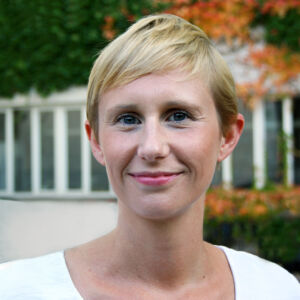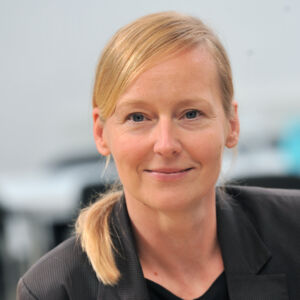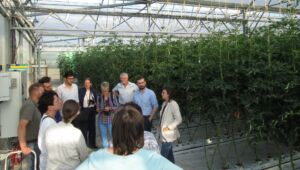To combat water scarcity, water reuse technologies prove to be promising, especially in agriculture. However, the successful implementation of new solutions can often be challenging and not only for technical reasons. As part of the HypoWave+ research project, ISOE – Institute for Social-Ecological Research has therefore been working on prevalent social and institutional hurdles. The research results are now available and ISOE water expert Dr. Martina Winker will present them at the International Water Association (IWA) conference taking place in Cape Town, South Africa, from March 16 to 19, 2025.
Worldwide, water reuse has long been recognized as an important component of future water security and is becoming increasingly relevant in view of the consequences of climate change, especially in regions that are characterized by droughts and water scarcity. In the research projects HypoWave and HypoWave+, a new approach to water reuse has been successfully tested since 2016: The research team, led by the University of Braunschweig, developed a particularly water-efficient method for hydroponic vegetable cultivation using high-quality treated irrigation water and implemented it within the framework of a living lab.
The innovation: The irrigation water for cultivation is taken from municipal wastewater. The treatment has optimized an already water-efficient process for agricultural production. “Technical milestones such as the water reuse system in HypoWave+ can lead agricultural irrigation into the future,” says ISOE water researcher Dr. Winker. “But that is only one side of the coin when it comes to establishing the innovation. In order to implement efficient new solutions, non-technical challenges also have to be overcome.” These include social and institutional hurdles.
Presentation of results from the HypoWave real-world laboratory at the IWA conference in Cape Town
How can new partnerships be formed that can sustain the application of technological innovations, and how can cooperation succeed in a new context? How is the innovation going to be established when it comes into application? Specifically, how will vegetables of the novel irrigation system find their way to the points of sale? What responsibilities do municipal operators and private companies have when participating in this innovation? These are some of the questions ISOE has addressed in the context of the research project HypoWave+ and has been working on in a living lab, an innovative type of cooperation in which interdisciplinary knowledge is integrated into practice-oriented experimental environments.
Dr. Winker will be presenting this approach using the example of HypoWave+ and its results at this year's 14th IWA Conference “Water Reclamation and Reuse” in South Africa. She and her ISOE research group will be happy to answer questions from media representatives – both on site in Cape Town and in Frankfurt am Main. Those interested in an interview are welcome to contact her by email at presse@isoe.de.
The talk to be held at the 14th IWA International Conference on Water Reclamation and Reuse is entitled
“Advancing Water Reuse through Technical and Social Innovation: Insights from a Living Lab in German Hydroponic Agriculture”
Time and location: Tuesday, March 3,.2025, Session: 16:30–17:30, Location Dechema
iwareuse2025.com/programme-overview
For more information about the research project HypoWave+, funded by the Federal Ministry of Education and Research (BMBF) please go to
www.hypowave.de
Contact:




